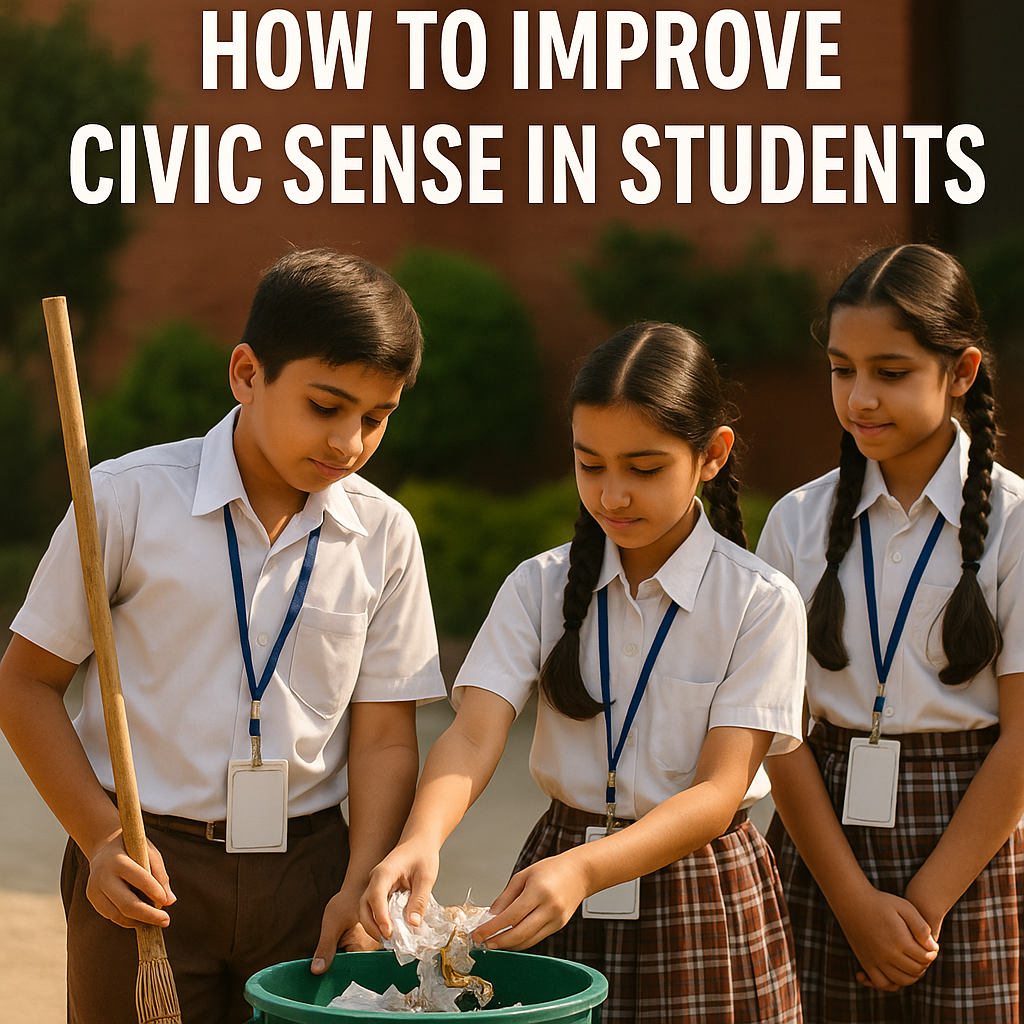How to Improve Civic Sense in Students: Building Responsible Citizens of Tomorrow
Civic sense refers to the social ethics and responsibilities an individual shows toward their society. It includes values like respect for public property, cleanliness, following rules, and empathy for fellow citizens. Unfortunately, this important value is often neglected in early education. The question is, how to improve civic sense in students so they grow up as responsible and aware citizens?
1. Integrate Civic Lessons into the School Curriculum
Schools are the primary platform where values are shaped. Integrating civic education into daily lessons can create a lasting impact:
- Include real-life case studies on civic issues like pollution, traffic violations, and littering.
- Teach students about the Constitution of India, fundamental duties, and public rights.
- Make civic sense part of moral science, EVS, and social studies from early grades.
2. Lead by Example: Role of Teachers and Parents
Children imitate adults. If teachers and parents model good civic behavior, students naturally follow:
- Always follow traffic rules, respect public property, and avoid littering when around children.
- Talk about civic responsibility at home and during parent-teacher interactions.
- Use storytelling to teach empathy, honesty, and the value of cooperation.
3. Organize Cleanliness Drives and Awareness Campaigns
Hands-on experiences create stronger learning impressions than theoretical knowledge:
- Host campus or community cleanliness drives under the Swachh Bharat Abhiyan.
- Involve students in creating posters and street plays on civic issues like littering, spitting in public, or wasting water.
- Reward consistent civic behavior through certificates or appreciation boards.
4. Use Digital Platforms and Gamification
With students increasingly engaged online, civic sense can be taught through digital innovations:
- Introduce apps or online quizzes that reward knowledge of civic rules and duties.
- Use educational YouTube videos, civic-based animation, or role-play games for engagement.
- Run social media campaigns where students share their civic actions using hashtags like #MyCivicSense.
5. Encourage Community Volunteering and Social Service
Volunteering nurtures empathy and understanding of community issues:
- Include community service hours as a part of academic credits.
- Allow students to work with local NGOs on topics like environment, education, or elderly care.
- Reflect on experiences through essays or presentations to reinforce learning.
6. Create a Positive School Environment
A school that promotes respect, hygiene, and responsibility instills those values in students:
- Implement strict policies against bullying, vandalism, and irresponsible behavior.
- Establish student councils to encourage democratic participation and accountability.
- Display visual reminders (charts, posters) promoting civic values in classrooms and corridors.
Conclusion
Instilling civic sense in students is not just about discipline; it’s about shaping the future of the nation. With the right combination of education, action, and consistent role modeling, we can nurture a generation that values cleanliness, lawfulness, and empathy. Let’s begin now—because responsible citizens are made, not born.



